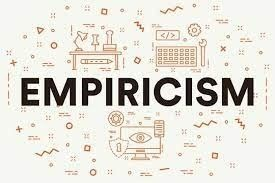
Empiricism: An Exploration of Knowledge through Experience
Introduction
Empiricism is a philosophical perspective that asserts that knowledge is primarily derived from sensory experience. This theory emphasizes the role of evidence and observation in the formation of ideas, challenging the notion that reason alone can provide us with an understanding of the world. Originating in ancient Greece and evolving significantly during the Enlightenment, empiricism has had a profound impact on the development of science and philosophy. This article delves into the origins, key concepts, and impact of empiricism, offering a comprehensive understanding of this foundational philosophy.
Origins and Historical Context
Empiricism can trace its roots back to the ancient Greek philosophers, particularly Aristotle, who emphasized the importance of observation and experience in acquiring knowledge. However, it was during the Enlightenment that empiricism truly flourished. Key figures such as John Locke, George Berkeley, and David Hume significantly advanced empiricist thought, challenging the rationalist ideas of their predecessors.
Locke's "An Essay Concerning Human Understanding" laid the groundwork for modern empiricism by arguing that the mind is a blank slate (tabula rasa) at birth and that all knowledge is derived from experience. Berkeley further developed this notion by emphasizing the role of perception in understanding reality. Hume, in his "Enquiry Concerning Human Understanding," explored the limits of human knowledge and the problem of induction, raising critical questions about causality and the nature of scientific reasoning.
Key Concepts in Empiricism
Empiricism encompasses various principles that guide the acquisition and validation of knowledge:
Sensory Experience: Empiricists assert that all knowledge originates from sensory experiences. Our understanding of the world is built upon the information we gather through our senses.
Tabula Rasa: The concept of the mind as a blank slate suggests that individuals are born without inherent knowledge, and that all knowledge is acquired through experience and perception.
Induction: Empiricism relies heavily on inductive reasoning, where generalizations are drawn from specific observations. This method is fundamental to scientific inquiry and experimentation.
Perception and Reality: Empiricists explore the relationship between perception and reality, questioning how accurately our sensory experiences reflect the external world.
Influence and Criticism
Empiricism has profoundly influenced the development of modern science and the scientific method. By emphasizing observation and experimentation, empiricist principles have provided a robust framework for conducting empirical research and advancing knowledge in various fields.
However, empiricism has faced criticism from several quarters. Rationalists argue that reason and innate ideas play a crucial role in understanding the world, challenging the empiricist claim that all knowledge comes from sensory experience. Additionally, the problem of induction, as highlighted by Hume, raises questions about the reliability of inductive reasoning and the justification of scientific generalizations.
Notable Philosophers and Works
Several philosophers have significantly contributed to empiricist thought:
John Locke: In "An Essay Concerning Human Understanding," Locke argued that all knowledge is derived from experience, laying the foundation for modern empiricism.
George Berkeley: In "A Treatise Concerning the Principles of Human Knowledge," Berkeley explored the role of perception in understanding reality, emphasizing that existence is tied to perception.
David Hume: In "An Enquiry Concerning Human Understanding," Hume examined the limits of human knowledge and the problem of induction, significantly influencing subsequent philosophical thought.
Conclusion
Empiricism remains a vital and influential philosophy, emphasizing the importance of sensory experience in the acquisition of knowledge. Its principles have shaped the development of the scientific method and continue to inform contemporary discussions in epistemology and the philosophy of science. By embracing empiricist ideas, individuals can develop a more grounded and evidence-based understanding of the world.
Further Reading and External Links
- Locke, John. An Essay Concerning Human Understanding. Archive.org
- Berkeley, George. A Treatise Concerning the Principles of Human Knowledge. Archive.org
- Hume, David. An Enquiry Concerning Human Understanding. Archive.org
- Russell, Bertrand. The Problems of Philosophy. Amazon
- Stanford Encyclopedia of Philosophy: Empiricism
- Internet Encyclopedia of Philosophy: Empiricism
- Encyclopedia Britannica: Empiricism
This article aims to provide a broad yet detailed overview of empiricism, encouraging further exploration and understanding of this foundational philosophical perspective.